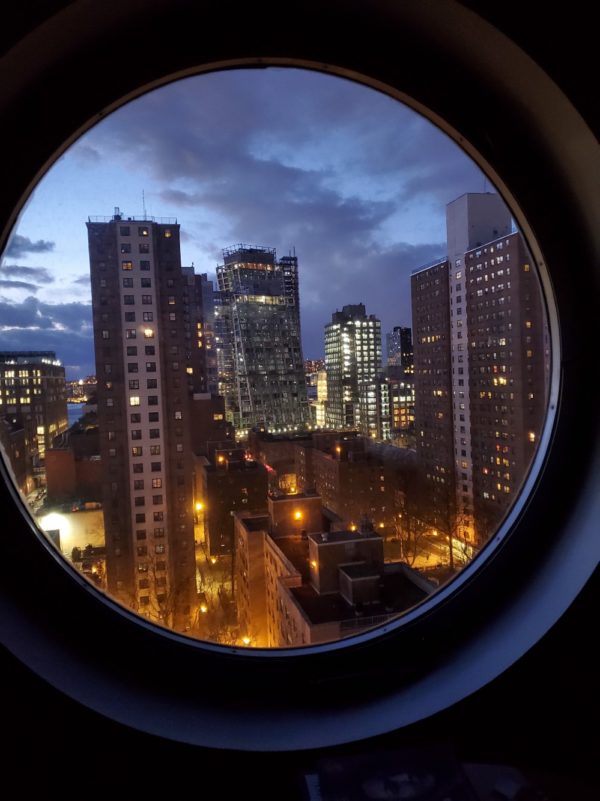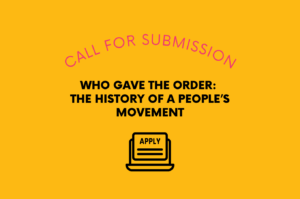
Teju Cole is on top of his game in a new, Coronavirus-inspired short story published on LEVEL, a publication hosted on Medium. The ravishingly imagined “City of Pain” follows a traveller who arrives a holy city, Reggiana, whose citizens, rich and poor alike, are being plucked by “the Visitation,” a democratic hand of death. Remarkably, it is written in the third person, a point of view Cole doesn’t use in fiction, and, probably because it is a compressed work, it pleasurably matches, even excels, his usual prose standards.
____________________________________
City of Pain
And after one of those journeys that involved the drawing of an imaginary line across the Earth, a flight that brought her to the gleaming nowhere of an airport in the early hours of the morning, the traveler caught another flight, around noon, and continued her journey. She spent six hours on this second plane, or it might have been 16 hours; the difference between the two was difficult to tell in that airborne suspension. The traveler’s wristwatch made one claim, her calendar made another, and her jet-lagged body made a third. Finally, around midday, the plane began its approach for landing, and the traveler could see from the air what resembled, in almost every respect, a familiar metropolis: the same twisting highways, the same elongated parks, the same repeating towers. It reminded her, as aerial views always did, of what her mother had once told her about the collapse of enormous stars, which could shrink to a width no greater than that of a city. Judging only by distance covered, the traveler might well have just circled the globe and returned to the place where she had started. But there was something about this view that convinced her otherwise: The immense city was circular, and the tangle of highways in its center resolved neatly into several major roads leading outward, like the spokes of a wheel. This cartographic regularity was how she knew that she had arrived, for the first time, in the city of Reggiana.
In the terminal, she saw a signboard featuring the crest of the city, illustrated with three dolphins. She’d arrived in late winter, and the weather was inconstant. There were snow flurries one moment and the softest sunshine the next, and yet, she was soon to discover, no matter what the weather looked like on a given day, the temperature was always higher than expected. She who knew how similar cities could be was now interested only in their differences. When she discovered that all the citizens of Reggiana were refugees, recent arrivals from elsewhere, she knew she had come to the right place. The city had been rapidly constructed, everyone coming in at almost the same time; the founding myth said that between the city’s establishment and its peak population, hardly a full season had passed. This collective newness meant that learning the culture of Reggiana was itself central to the culture of Reggiana. Like Qom or Touba, Reggiana was a holy city. As in Jerusalem, Lhasa, Mecca, and Ile-Ife, the experience of the numinous was pervasive in all its streets and on all its walls. To touch a railing or open a gate in Reggiana was to be reminded of human mortality. There was no interaction that was not imbued with a tremendous weight; each was like a sugar cube as heavy as Mount Everest. All this was true, but the atmosphere of the city was neither ascetic nor dramatic. The citizens had, instead, a sober sense of living in an ensorcelled world in which the conflict was with what they could not see. They knew that what was invisible was not thereby imaginary. They were under the scourge of a Visitation, and it was for this reason that all Reggiani carried a curfew in their heads and a knot in their hearts.
At the time of the traveler’s visit, the hand of Death was heavy on that careful city. As in all earthly places, people were born and people died, but Reggiana also daily endured numerous additional bereavements. So extensive was the scourge that, for many of the citizens, the day’s first activity was to check the obituaries. As one carter said to the traveler, taking her to collect her rations: “Each one of us checks the obituaries not only to see who has died during the night but also to confirm that it was not us.” On his cart was painted the city’s crest, which featured a doorknob. “Reggiana,” the carter added, “is one of the few true democracies in the world. Anyone at any moment might succumb to the Visitation: the rich, the poor, the educated or simple, the well-known or anonymous. The actual population of the city is unclear, for we stubbornly include the dead on our census rolls.”
___________________________________________
Continue reading on Medium.









COMMENTS -
Reader Interactions